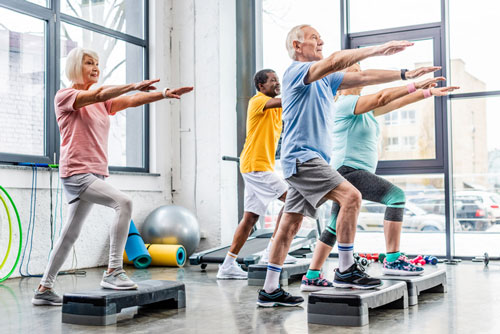We’ve all seen it happen to a parent, grandparent, and other loved ones…
When they were young, they were energetic and full of life.
As they got older, they slowed down. They grew weak.
They started walking with a slow shuffle. Simple tasks like opening a jar or walking up stairs became impossible. They became painfully thin. The energy was gone.
Doctors have a name for this condition: Frailty.
You may believe that it’s an inevitable part of old age…that there’s nothing you can do to stop it. But a new study shows that’s not true.
The research was published in the Journal of the Medical Association (JAMA).[1]
Scientists analyzed 46 studies involving 120,000 people in 28 countries. They found that 4.3% of people over age 60 become frail each year.
Frailty does not just mean losing your quality of life. It raises your risk of injury due to falling, hospitalization and death.
The medical definition of frailty is having at least three of these symptoms:
- Unintended weight loss
- Low physical activity
- Low energy
- Weak grip strength
- Slow walking speed
2 Secrets to Stopping Frailty
The study authors point to two things that can slow or even reverse frailty… protein supplementation and strength training. [2]
Research recently published in the European Journal of Nutrition looked at 440 elderly subjects. Investigators measured the subject’s protein intake against their level of frailty after three years. Getting adequate protein was linked with a lower risk of frailty.[3]
Adults should get about a third of their calories from protein. If you typically eat 2,000 calories a day, for example, you should get about 150 grams of protein. In addition to making sure each meal has a substantial dose of protein, make sure your snacks are protein-heavy.
Excellent protein sources include:
- Organic turkey and chicken
- Grass-fed beef and pork
- Wild-caught fish and shellfish
- Raw nuts and seeds
- Pastured eggs
- Full-fat organic dairy
- Whey protein drinks
For strength training, you can use weights or do body-weight exercises. Push-ups, pull-ups, abdominal crunches, lunges, and squats are excellent ways to build strength.[4]
Strength-training novices should follow this advice to avoid injury and maximize results:
- Avoid locking your joints when using weights.
- When using weights, take three seconds to lift or push it into place. Hold the position for one second. Take another three seconds to return to your starting position.
- Breathe out as you lift or push. Breathe in as you relax.
- Don’t hold your breath during strength exercises. This can raise your blood pressure, especially if you have heart disease.
- Use smooth, steady movements. Avoid jerking or thrusting.
Getting old does not have to mean getting feeble. Getting protein and doing strength training can keep you strong and energetic into your 70s, 80s, and beyond.
Editor’s Note: Independent Healing readers recently discovered the best way to get fast results from resistance exercise. To find out more, go HERE.
Related Articles
Best Way to Use Protein to Stay Strong
High-Intensity Workouts: Good at Any Age
The Right Way
to Take Protein Powder
Like this Article? Forward this article here or Share on Facebook.
[1]https://jamanetwork.com/journals/jamanetworkopen/fullarticle/2740784
[2]https://medicalxpress.com/news/2019-08-frailty-medical-condition-inevitable-result.html
[3]https://medicalxpress.com/news/2019-06-adequate-protein-intake-associates-frailty.html
[4]http://nihseniorhealth.gov/exerciseandphysicalactivityexercisestotry/strengthexercises/01.html

